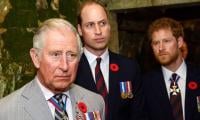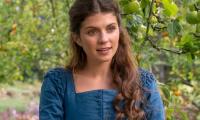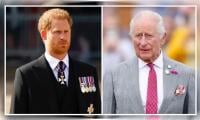Saving the Pashtun heritage with a bow and arrow
Makha, a centuries-old Pashtun archery sport, very much alive in Karachi
By Zia Ur Rehman
June 08, 2015
Karachi
Several men, both young and old, thronged an open space near the railway tracks in City Railway Colony on Saturday to watch the final match of a ‘Makha’ tournament amid music and revelry, writes Zia Ur Rehman.
The final between the Jadoon Group Banaras and the Young Sultanabad began at 6pm and continued till the early hours of Sunday.
Makha, also pronounced by some as ‘Mokha’, is a traditional Pashtun archery sport dating back hundreds of years, and mainly played in Swabi and Buner districts of the Khyber Pakhtunkhwa province.
In Karachi, the residents who have arrived in the city from these two districts have been organising Makha tournaments in different Pashtun neighbourhoods of the metropolis since 1992.
Similar to archery, the game is played with a long arrow (ghashay in Pashto) and a long bow (leenda). The tip of the arrow is not sharp but a round metal plate (tubray).
Makha players say that the archery was used as a tool in warfare in the past, but after the invention of modern weapons, it has now turned into a game, mainly in the land of the Yousafzai tribe - Swabi and Buner districts.
Rules of the game
Makha players say that there are teams each having 12 players - two of them reserves. The archers try to hit a small white wooden target (takai) placed at some height and 32 feet away.
The target is surrounded by a circular ring and secured in fresh clay. Each team also chooses a community elder as a judge from its side for each match. Each player has his own bow and arrow bought mostly from the Topi and Marghuz areas of Swabi.
“Each player shoots twice per round and the team with the most successful hits moves to the next round of the tournament,” said Taj Muhammad Jadoon, an organiser who also did the commentary for the final match in Pashto.
Three dhol players are also hired for the event. When the target is hit, they start beating their dhols and playing flutes and the team’s supporters start dancing.
The dhol players from Keamari have been performing in Makha tournaments for many years. In every match, the winning team pays them Rs1,000, while they receive Rs500 from the runner-up.
Besides, Gul Bampokhwal and Resal Muhammad, two Pashto poets, recited their poems at the tournament.
Teams from different Pashtun-populated areas including City Railway Colony, Hijrat Colony, Sultanabad, Banaras, Faqir Colony, Mohajir Camp, Ittehad Town, Keamari and old Sabzi Mandi participated in the contest that started on May 13. The team that wins the final hosts the next tournament in its area.
“We organise these tournaments on a self-help basis. Each team pays Rs3,200, mainly collected from the players and the enthusiasts of the sport,” said Jadoon.
Saving the game
The organisers and players say that they want to revive and promote this centuries-old Pashtun sport in the city by organising such tournaments.
Hatim Khan, 52, a Makha player, said he had been playing the game for three decades in the city. He added that he had learnt Makha at a very young age and now wished to teach it to his children.
Muhammad Arshad Khan, an artist associated with the Pashtun Thinkers Forum, a Karachi-based cultural organisation, said promoting traditional games such as Makha could help in curbing social evils and militancy.
“Makha tournaments, so far, are mainly funded by the players, but the government should start financially supporting such contests,” he added.
Jadoon expressed similar views. To grab the government’s attention, the organisers had invited Syed Najmi Alam, the Karachi president of the Pakistan People’s Party, the ruling party in Sindh.
“In Pashtun neighbourhoods, there are no parks and stadiums where people, especially youth, can spend free time,” said Jadoon. “Traditional games, including Makha, are a source of entertainment for people and should be organised regularly and in every area of the city.”
Jadoon said most Pashtuns living in Karachi moved to the city in the 60s and their younger generations do not know much about their traditional games. “They [traditional games] are part of our history. They are what keep us in touch with our roots,” he said.
“It’s not really the children’s fault; all they’ve grown up with is cricket. So this tournament is our attempt to not only save this game; but our heritage too.”
Several men, both young and old, thronged an open space near the railway tracks in City Railway Colony on Saturday to watch the final match of a ‘Makha’ tournament amid music and revelry, writes Zia Ur Rehman.
The final between the Jadoon Group Banaras and the Young Sultanabad began at 6pm and continued till the early hours of Sunday.
Makha, also pronounced by some as ‘Mokha’, is a traditional Pashtun archery sport dating back hundreds of years, and mainly played in Swabi and Buner districts of the Khyber Pakhtunkhwa province.
In Karachi, the residents who have arrived in the city from these two districts have been organising Makha tournaments in different Pashtun neighbourhoods of the metropolis since 1992.
Similar to archery, the game is played with a long arrow (ghashay in Pashto) and a long bow (leenda). The tip of the arrow is not sharp but a round metal plate (tubray).
Makha players say that the archery was used as a tool in warfare in the past, but after the invention of modern weapons, it has now turned into a game, mainly in the land of the Yousafzai tribe - Swabi and Buner districts.
Rules of the game
Makha players say that there are teams each having 12 players - two of them reserves. The archers try to hit a small white wooden target (takai) placed at some height and 32 feet away.
The target is surrounded by a circular ring and secured in fresh clay. Each team also chooses a community elder as a judge from its side for each match. Each player has his own bow and arrow bought mostly from the Topi and Marghuz areas of Swabi.
“Each player shoots twice per round and the team with the most successful hits moves to the next round of the tournament,” said Taj Muhammad Jadoon, an organiser who also did the commentary for the final match in Pashto.
Three dhol players are also hired for the event. When the target is hit, they start beating their dhols and playing flutes and the team’s supporters start dancing.
The dhol players from Keamari have been performing in Makha tournaments for many years. In every match, the winning team pays them Rs1,000, while they receive Rs500 from the runner-up.
Besides, Gul Bampokhwal and Resal Muhammad, two Pashto poets, recited their poems at the tournament.
Teams from different Pashtun-populated areas including City Railway Colony, Hijrat Colony, Sultanabad, Banaras, Faqir Colony, Mohajir Camp, Ittehad Town, Keamari and old Sabzi Mandi participated in the contest that started on May 13. The team that wins the final hosts the next tournament in its area.
“We organise these tournaments on a self-help basis. Each team pays Rs3,200, mainly collected from the players and the enthusiasts of the sport,” said Jadoon.
Saving the game
The organisers and players say that they want to revive and promote this centuries-old Pashtun sport in the city by organising such tournaments.
Hatim Khan, 52, a Makha player, said he had been playing the game for three decades in the city. He added that he had learnt Makha at a very young age and now wished to teach it to his children.
Muhammad Arshad Khan, an artist associated with the Pashtun Thinkers Forum, a Karachi-based cultural organisation, said promoting traditional games such as Makha could help in curbing social evils and militancy.
“Makha tournaments, so far, are mainly funded by the players, but the government should start financially supporting such contests,” he added.
Jadoon expressed similar views. To grab the government’s attention, the organisers had invited Syed Najmi Alam, the Karachi president of the Pakistan People’s Party, the ruling party in Sindh.
“In Pashtun neighbourhoods, there are no parks and stadiums where people, especially youth, can spend free time,” said Jadoon. “Traditional games, including Makha, are a source of entertainment for people and should be organised regularly and in every area of the city.”
Jadoon said most Pashtuns living in Karachi moved to the city in the 60s and their younger generations do not know much about their traditional games. “They [traditional games] are part of our history. They are what keep us in touch with our roots,” he said.
“It’s not really the children’s fault; all they’ve grown up with is cricket. So this tournament is our attempt to not only save this game; but our heritage too.”
-
 Zoe Saldana Overtakes Scarlett Johansson To Become Highest Grossing Actor Of All Time
Zoe Saldana Overtakes Scarlett Johansson To Become Highest Grossing Actor Of All Time -
 Former Congressional Employee Sold Stolen Government Phones For $150k
Former Congressional Employee Sold Stolen Government Phones For $150k -
 Joe Keery Credits Friends For Rare Experience
Joe Keery Credits Friends For Rare Experience -
 Jackson White Teases Darker Turn For Stephen In 'Tell Me Lies' Season 3
Jackson White Teases Darker Turn For Stephen In 'Tell Me Lies' Season 3 -
 Chris Hemsworth Leans On Matt Damon Amid His Shaky Marriage To Elsa Pataky?
Chris Hemsworth Leans On Matt Damon Amid His Shaky Marriage To Elsa Pataky? -
 Friends Of Prince William 'aghast' As King Charles Offers Olive Branch To Harry, Meghan Markle
Friends Of Prince William 'aghast' As King Charles Offers Olive Branch To Harry, Meghan Markle -
 What Cancer Does Colleen Hoover Have?
What Cancer Does Colleen Hoover Have? -
 Zayn Malik Drops Special Surprise For Fans On His 33rd Birthday
Zayn Malik Drops Special Surprise For Fans On His 33rd Birthday -
 Nicola Peltz Sends Harsh Message To Beckhams With Brooklyn Comments
Nicola Peltz Sends Harsh Message To Beckhams With Brooklyn Comments -
 Apple Martin 'lashes' Out At Mom Gwyneth Paltrow For Pushing Her 'too Hard'
Apple Martin 'lashes' Out At Mom Gwyneth Paltrow For Pushing Her 'too Hard' -
 Meghan Markle Going To 'humiliate' Prince Harry With UK Trip
Meghan Markle Going To 'humiliate' Prince Harry With UK Trip -
 Pastor Jailed After Secretly Filming Woman In Store
Pastor Jailed After Secretly Filming Woman In Store -
 Julio Iglesias Faces Serious Abuse Accusation
Julio Iglesias Faces Serious Abuse Accusation -
 Buckingham Palace’s ‘liability’ Prince Harry Comes Under Fire: ‘Can Really Harm King Charles’
Buckingham Palace’s ‘liability’ Prince Harry Comes Under Fire: ‘Can Really Harm King Charles’ -
 Emily Bader Reveals Inspiration Behind Choosing Latest Project
Emily Bader Reveals Inspiration Behind Choosing Latest Project -
 Anthropic Rolls Out Claude Cowork For Non-coders
Anthropic Rolls Out Claude Cowork For Non-coders



